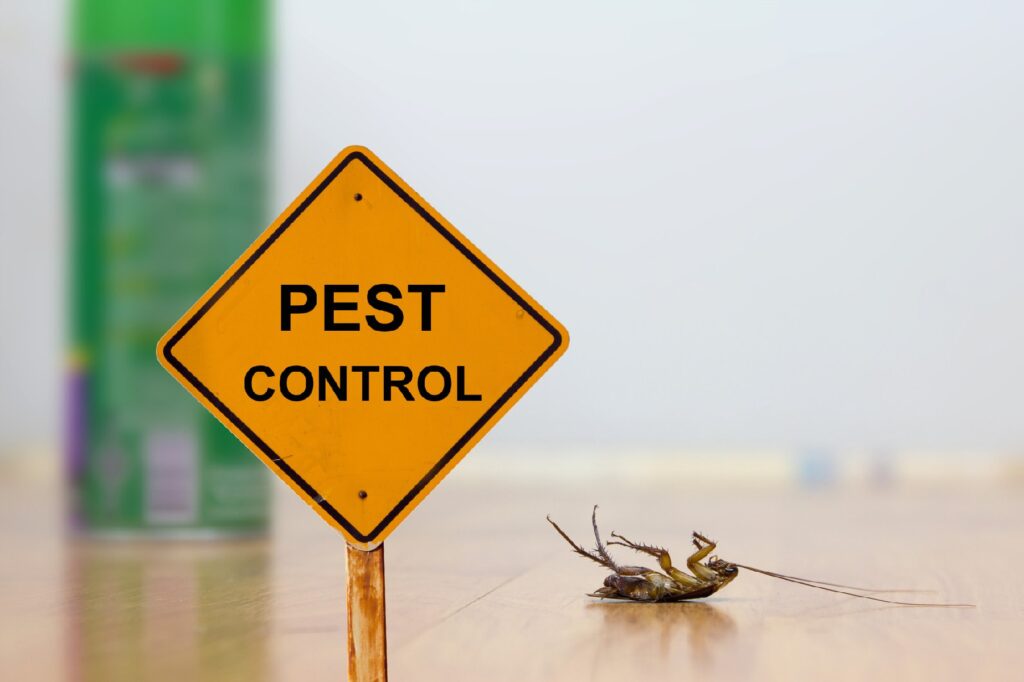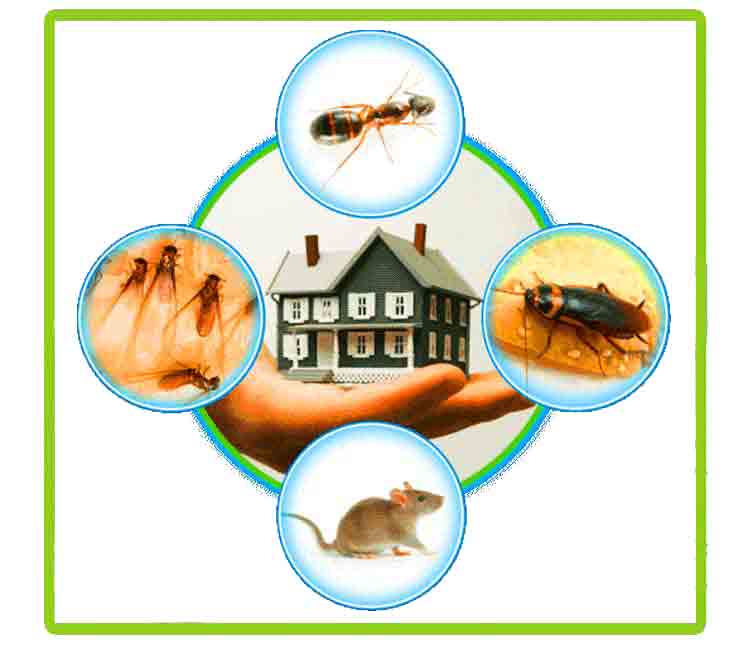Safe and Reliable Bug Control for Lasting Protection
The value of safe and dependable pest control can not be overstated, especially in an era where ecological problems are extremely important. Reliable pest administration requires a diverse technique that stabilizes ecological stability with the requirement for effective insect reductions. By discovering environment-friendly remedies and integrated insect management techniques, home owners can achieve long lasting protection versus intrusive varieties while protecting advantageous environments. The nuances of these methods may not be right away clear, triggering a more detailed examination of the practices that can lead to sustainable pest control outcomes. What actions can be required to ensure both safety and efficacy in pest management?
Understanding Bug Control Techniques
Pest control encompasses a selection of methods aimed at handling and removing unwanted pests and rodents that can threaten both wellness and residential or commercial property. Comprehending these techniques is important for effective parasite monitoring.
The key categories of parasite control techniques consist of mechanical, biological, and chemical approaches. Mechanical techniques include physical obstacles and traps to stop bug entrance and capture unwanted types. Using screens on home windows or employing sticky traps can considerably lower insect populaces without presenting damaging materials - exterminator coquitlam.

Chemical parasite control is usually the most recognized technique, using pesticides to get rid of bugs. These chemicals can be reliable but must be used with caution to avoid adverse effects on non-target species and the atmosphere.
Advantages of Eco-Friendly Solutions
How can green options transform pest control techniques? The adoption of green insect control approaches uses numerous advantages, considerably boosting the efficiency and safety and security of insect monitoring.

An additional advantage is the positive influence on neighborhood biodiversity. Green solutions are developed to target specific insects while protecting valuable insects and wildlife, promoting a balanced ecological community. This approach aligns with the growing consumer need for sustainable methods, boosting the credibility of bug control providers.
Integrated Insect Management Techniques
The application of environmentally friendly remedies normally brings about the fostering of Integrated Bug Administration (IPM) methods, which additionally boost bug control effectiveness. IPM is an alternative technique that integrates multiple tactics to take care of insect populations while decreasing environmental influence. This technique stresses using biological, cultural, mechanical, and chemical controls, making certain a sustainable and balanced method of insect management.
One essential aspect of IPM is the extensive evaluation of parasite activity and environmental conditions. By monitoring bug populations and recognizing their life process, professionals can execute targeted treatments that interrupt the pest's environment or lifecycle, minimizing reliance on chemical pesticides. In addition, cultural techniques such as plant turning and environment adjustment can dramatically decrease pest facility and reproduction.
One more crucial part is the use of organic control agents, such as valuable bugs or microbes, which can naturally subdue pest populaces. When chemical applications are necessary, IPM focuses on using low-risk pesticides and uses them selectively, lessening direct exposure to non-target organisms and people.
Including IPM techniques not just improves insect control effectiveness yet also advertises a more secure community, straightening with the growing demand for sustainable methods in bug administration.
Safe Practices for House Owners
Understanding the significance of secure techniques in insect control can encourage homeowners to successfully take care of pest issues while protecting their wellness and the setting. Implementing non-toxic techniques and preventative measures is important in decreasing direct exposure to harmful chemicals.
Home owners need to initially examine their atmosphere for conditions that attract pests, such as standing food, water, and mess waste. Consistently cleaning and sealing access factors can discourage pests from attacking the home. Making use of natural deterrents, such as crucial oils or diatomaceous planet, can offer effective choices to chemical pesticides.
When chemical therapies are required, homeowners need to choose for items that are specifically identified as risk-free for residential use. It is important to comply with application guidelines diligently to prevent overexposure. Using targeted treatments in locations where insects are recognized, rather than covering spraying, can substantially lower chemical use.
Last but not least, preserving open interaction with insect control specialists is vital. House owners need to ask concerning the safety of items made use of and request green options whenever possible. By taking on these safe practices, house owners can create a healthier living atmosphere while properly taking care of insect concerns.

Tips for Long-Term Defense
Developing an insect monitoring approach that explanation emphasizes long-term security can considerably boost the performance of the safe practices previously talked about. To accomplish this, home owners need to implement regular inspections of their residential or commercial property, concentrating on concealed locations such as attic rooms, cellars, and crawl rooms. Early discovery of insect task is critical in stopping problems from holding.
In addition, maintaining a tidy setting is essential. This consists of correct food storage space, immediately cleaning up spills, and regularly disposing of trash. These practices reduce attractants that attract parasites right into the home. Securing entrance points, such as splits around home windows and doors, can effectively obstruct prospective pest access.
Landscape design should additionally be thought about; maintaining plants cut and maintaining a distance in between greenery and the home reduces hiding areas for pests. Making use of all-natural deterrents, such as crucial oils or diatomaceous planet, can better dissuade problems without turning to rough chemicals.
Finally, collaborating with a specialist insect control solution for regular analyses can offer an added layer of safety and security. These specialists can provide customized suggestions and progressed treatments, making sure that your home remains secured versus insects in the lengthy term.
Verdict
Finally, trusted and secure bug control calls for a multifaceted technique that highlights eco-friendly techniques and Visit This Link incorporated parasite management. By executing all-natural deterrents, performing normal assessments, and maintaining proper cleanliness, residential or commercial property owners can dramatically lower pest populations while safeguarding valuable pests and the environment. Collaboration with professional parasite control solutions enhances the effectiveness of these methods, making sure customized options that supply enduring defense and comfort versus future invasions.
Effective pest management needs a complex technique that stabilizes environmental stability with the need for effective pest suppression. The fostering of green parasite control approaches uses various benefits, considerably enhancing the effectiveness and safety and security link of bug administration.The implementation of eco-friendly remedies naturally leads to the fostering of Integrated Bug Administration (IPM) strategies, which further boost insect control efficacy. exterminator coquitlam. By monitoring pest populaces and determining their life cycles, specialists can implement targeted treatments that disrupt the parasite's habitat or lifecycle, reducing dependence on chemical pesticides.In conclusion, reputable and secure bug control needs a complex technique that emphasizes green techniques and incorporated insect monitoring